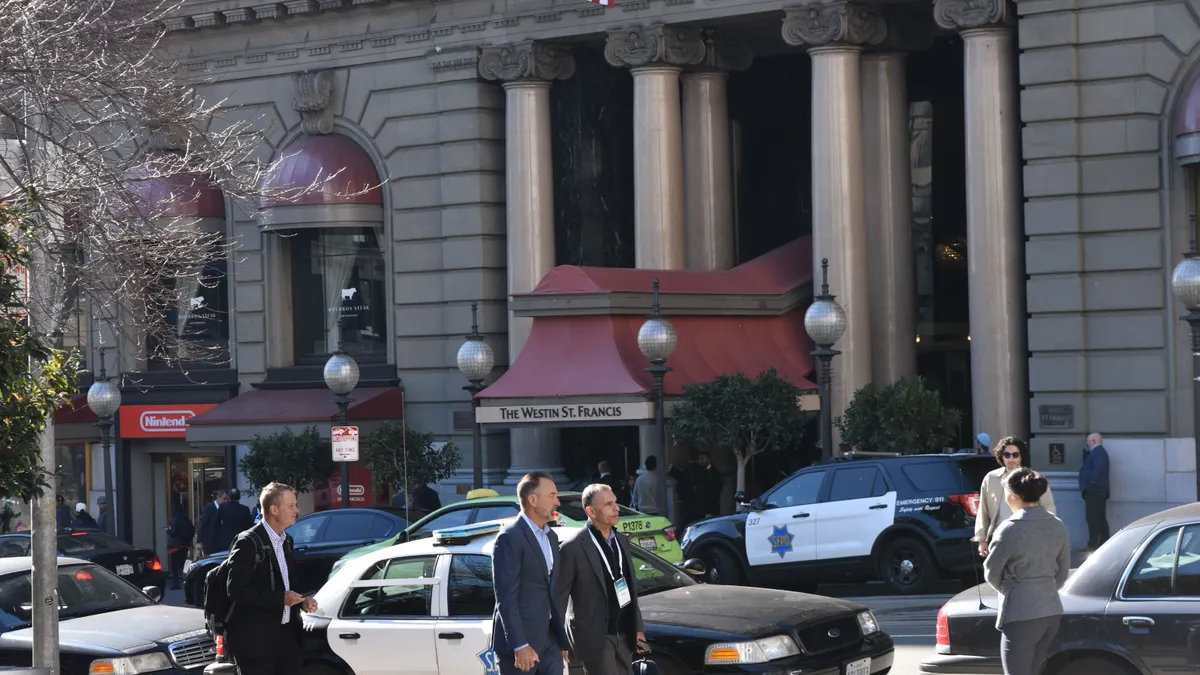The amount of funding going into biotechnology companies has fallen off over the last couple months, a trend the investment bank Jefferies pins on Trump administration policies aimed at gutting the agencies responsible for conducting and regulating drug research.
Looking at financial data from FactSet, Jefferies analysts found biotech funding in May was down 57%, to just over $2.7 billion, compared to the same time last year. That sum was only slightly better than the nearly $2.6 billion raised in April — the worst haul in three years — and was also 44% lower than the average seen across the past 12 months.
The analysts, David Windley and Tucker Remmers, argue that these declines have been exacerbated by Trump’s White House. They believe unclear plans to lower U.S. drug prices, coupled with mass layoffs at the Food and Drug Administration and colossal budget cuts proposed for the National Institutes of Health, have diminished investor confidence in biotech.
“Current policy proposals and agency staffing cuts have cast a cloud over biotech investment,” Windley and Remmers wrote in a note to clients Tuesday. “Since product development cycles can range 12-15 years in this industry, biotechs (and their boards and investors) want clarity on FDA regulation, drug pricing, and funding before committing to large, [long-term] investments.”
As such, the “current environment is not conducive to biotech investment right now, contributing to the soft funding,” they added.
Significant dips in funding can hurt any industry. But they’re especially dangerous for biotech, where the expensive process of discovering and testing new medicines requires companies to raise cash on a near-constant basis. Most drug startups never become profitable.
The recent pullback, then, means it’s likely some companies are operating even further in the red. Jefferies’ analysis found funding for public biotechs — whether from an initial public offering, a follow-on stock offering or a so-called PIPE deal — totaled $1.1 billion in May, “far below” the roughly $4.5 billion of cash those companies burn through each month on average.
Investors have also increasingly been pressuring the boards of struggling biotech companies to liquidate and return capital to shareholders rather than continue on in a difficult climate. In the past couple of months alone, cancer drugmaker iTeos and immune system specialist Third Harmonic Bio each announced plans to sell their assets and shut down.
Many others are evaluating options. California-based Tempest Therapeutics, for example, is exploring strategic transactions because it doesn’t have enough money to complete studies of its main drug. Tempest CEO Stephen Brady said capital markets “have been unavailable to support the next stage of advancement.”
According to the Jefferies analysts, venture capital contributions have “held up better” than the public markets’ so far this year, with the former down 12% compared to 2024 and the latter down 62%. Monthly venture capital funding has averaged about $1.9 billion in 2025, they wrote.
The analysts also noted how, last year, the first quarter had the highest levels of biotech funding. The comparative declines should therefore begin to ease in the back half of this year.
What may not ease is the “uncertainty on steroids” that biotech investors and dealmakers say they’ve been contending with for the last six months. Some investment firms claim they’ve already seen changes in their day to day. At Lux Capital, principal David Yang previously told BioPharma Dive that some academic institutions were asking for money to cover overhead costs shortly after hearing news of the proposed NIH cuts.
And at the Chicago Biomedical Consortium, Executive Director Michelle Hoffmann said her team is “incredibly worried” they won’t “get enough projects through our process to be building new, small companies.”
There is “a lot of fear and uncertainty” and “tightening belts,” she said.





















